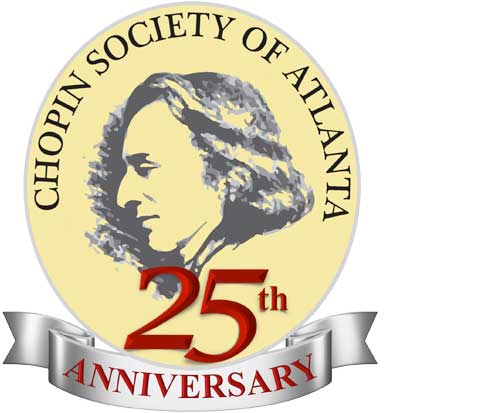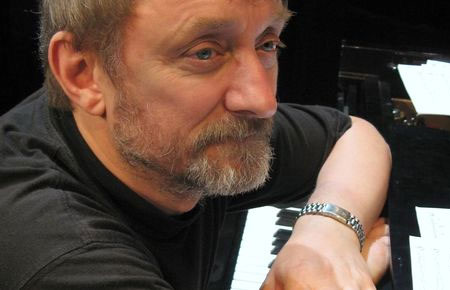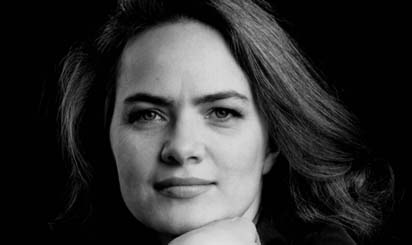





3xChopin
Exclusive interview by Bożena U. Zaremba
3xChopin is a stunning and unprecedented project undertaken to celebrate the Chopin Year in honor of the 200th anniversary of the composer’s birth. It features three generations of Chopin’s music interpreters, three unique personalities, and three diverse visions of the works of this genius. Ewa Pobłocka is a distinguished classical pianist. Andrzej Jagodziński is a leader of a renowned jazz
trio and a precursor of jazz interpretations of Chopin’s music. Leszek Możdżer represents the youngest generation of jazz pianists.A dazzling entertainer, he is always pushing the boundaries and exploring the possibilities that the instrument offers. They interpret Chopin’s music differently; they also talk about it differently from one another.
About the project and its musicians
Ewa Pobłocka: I have never participated in such a project and was delighted when it was offered to me. It is wonderful that this music stimulates different ideas and different endeavors. We should open ourselves to other possibilities and pursue ways of interpreting Chopin other than just classical.
Andrzej Jagodziński: Możdżer is a thrilling, utterly modern and an avant-garde artist and pianist, not only from the jazz standpoint. In his music, you can hear the influence of various genres of music. I am a more poised and traditional musician; I was raised with different influences, listening to different music, in the same way as my colleagues from the Trio were.
Leszek Możdżer: Am I avant-garde? This can be subject to discussion. In my opinion, I am more of a link between the world of classical music and jazz – I do play improvised music, but the sound that I represent distinctly corresponds to the aesthetics of classical music. Andrzej Jagodziński, on the other hand, is evidently a true jazz musician; he completely transferred Chopin’s music into the jazz domain, both in the sound and form.
About Chopin
AJ: Chopin epitomizes Romanticism, which came about as the reaction to Classicism and its stiff structures. I am talking about the liberties Chopin took and his freedom of expression, both in the melody and rhythm. Chopin considered Bach to be the greatest composer of them all, and when he felt lonely or depressed, he would sit at the piano and play Bach’s Preludes and Fugues, but he was truly a self-taught talent and did not pattern his music after any of his predecessors or contemporaries.
EP: He was foremost a fantastic composer and a fantastic pianist. The musical education of any pianist should include Chopin, because his music teaches excellent pianism.
LM: Chopin was a brilliant piano composer – he perfectly understood the piano and had a great feel for this instrument, which can be heard in his compositions. Through his music we can appreciate its possibilities more deeply.
Favorite aspects of Chopin’s music
AJ: The most important are his melodies, saturated with Slavonic folk elements. In Polish folk music, singing ad libitum or a capella, that is, independent of rhythm or harmony, is very common, and this is something that has stayed alive in our tradition of sound.
LM: The melodic quality of Chopin’s music and this Slavonic sorrow appeal to me most. Also, I am constantly inspired by his harmony, especially his masterly use of diminished chords and the chromaticism, which electrify every jazzman.
About literary associations
AJ: His music definitely brings the Polish landscape to mind. In his youth, Chopin often spent his vacation in the country, where he was exposed to original folk music and he transferred this mood into his music. Also, the news from Poland that reached him during his later visit to Vienna certainly had an impact on his compositions, for example, on Scherzo in B-minor (the one with the motifs from the Polish Christmas carol “Sleep Little Jesus”), on which he was working at that time. These inspirations are undeniable, but generally speaking, Chopin’s music is purely instrumental, and I would refrain from attaching any programmatic labels to it.
LM: While listening to music, everyone sees something different in his or her own mind, so if you claim that Chopin’s music evokes a vision of a landscape or a patriotic statement, it is no more than just your viewpoint. What is more, if Chopin wanted to infuse his music with some sort of proclamation, it was no more than his viewpoint. Music is an abstract form of art. If you wish to reduce it to some tangible vision, this is merely a whim of your mind. Besides, the music itself can create different, sometimes extreme emotions, depending on your particular experience or the time of the day.
EP: It helps understand what the music conveys and communicates. But I do understand and admire those musicians who treat music solely as abstract, and kudos to those who can move the audience with this approach. I personally think that music and art, in general, need to touch the deeper layers of our souls. Hence, a good concert is the one that moves us, no matter if we leave appalled or overjoyed.
About the universal traits of Chopin’s music
AJ: It comes from the brilliance of the sound itself in his compositions. The fact that this music conquered Far East audiences proves this with no doubt. They recognize human elements in this music, common to all people. Another important aspect is the freedom of interpretation that this music allows. Interpretations may differ considerably and still be equally convincing.
LM: Chopin explored music and the piano itself in a profound way. He became a master in his field, which always incites fascination and respect.
EP: This should be examined by musicologists. It is hard for me to tell, because I play so that I don’t have to talk about it [laughs].
About improvisation
LM: For me, the most fascinating thing about improvisation is the fact that I don’t know what I am going to play in a moment – the unveiling of the future, which becomes the present. Even though jazzmen use certain set elements in their improvisations, improvisation cannot be predictable, because this kills the fascination and the feeling that what we witness on the stage will not happen ever again.
EP: In my youth, I demonstrated extraordinary improvising talent. When I came back from school and my mother asked me how it was, I would tell her, “Mom, sit down and I will play it for you.” And then I would sit at the piano to “portray” my day with music, and my mom guessed what had happened at school with absolute accuracy. Later in my life, when I matured and gained more self-awareness and knowledge, I lost this skill to a great extent, though sometimes I dare to insert some ornaments or commit myself to writing a cadenza in Mozart’s piano concertos.
About the difference in improvisation between classical music and jazz. Is it a matter of more freedom in jazz, swing, or syncopated rhythm?
AJ: All of them, I think. Swing is an inherent part of American music, especially in older styles and in mainstream jazz, where the so-called walking, or swing, is probably among the most important attributes. Besides that, we still have other ways of improvising, mainly in European jazz, where the sound is not so much linked to traditional roots of music as in America.
EP: It’s the liberties that jazz musicians take with regard to timing. They virtually ignore the bar lines, and at the same time they are able to meet at the designated moments. This requires incredible discipline from them.
LM: There is no difference, in my mind. The essence of any improvisation lies in its unpredictability. Swing no longer defines jazz – there are a lot of musicians who play jazz but do not swing, and those who swing but do not play jazz. For me, emotions play the most essential role in improvisation; it’s the emotions of revealing the future, which is a mystery.
About the influence of Chopin’s music on jazz
AJ: Some chords that were typical for Chopin appeared 100 years later in jazz. Chopin was notorious for his use of diminished chords. This leads us to chromatic scales, which are widely used in jazz improvisations. Also, some of Chopin’s melodic and harmonic associations, which are often based on dissonance and were not appreciated by his contemporaries, had a huge impact on jazz.
My Chopin
AJ: At some point I realized that this is my music; this is my atmosphere; this is the area where I can thrive.
LM: I try to extract and utilize some fragments from Chopin’s music, and in this way I can express myself. But most of all, during the concert I want to generate the atmosphere of magic and create the feeling that this moment is one and only.
EP: I try to express both the composer and myself, but the most important thing for me is to “sing” this music as if with a human voice. Also, there have been situations in my life when I was far away from home, whether it was because of martial law or I was on a concert tour, and at moments of incredible longing and sadness, I sat at the piano, where nobody could hear me, and I played Chopin. Then I came to realization that life was not so miserable.



